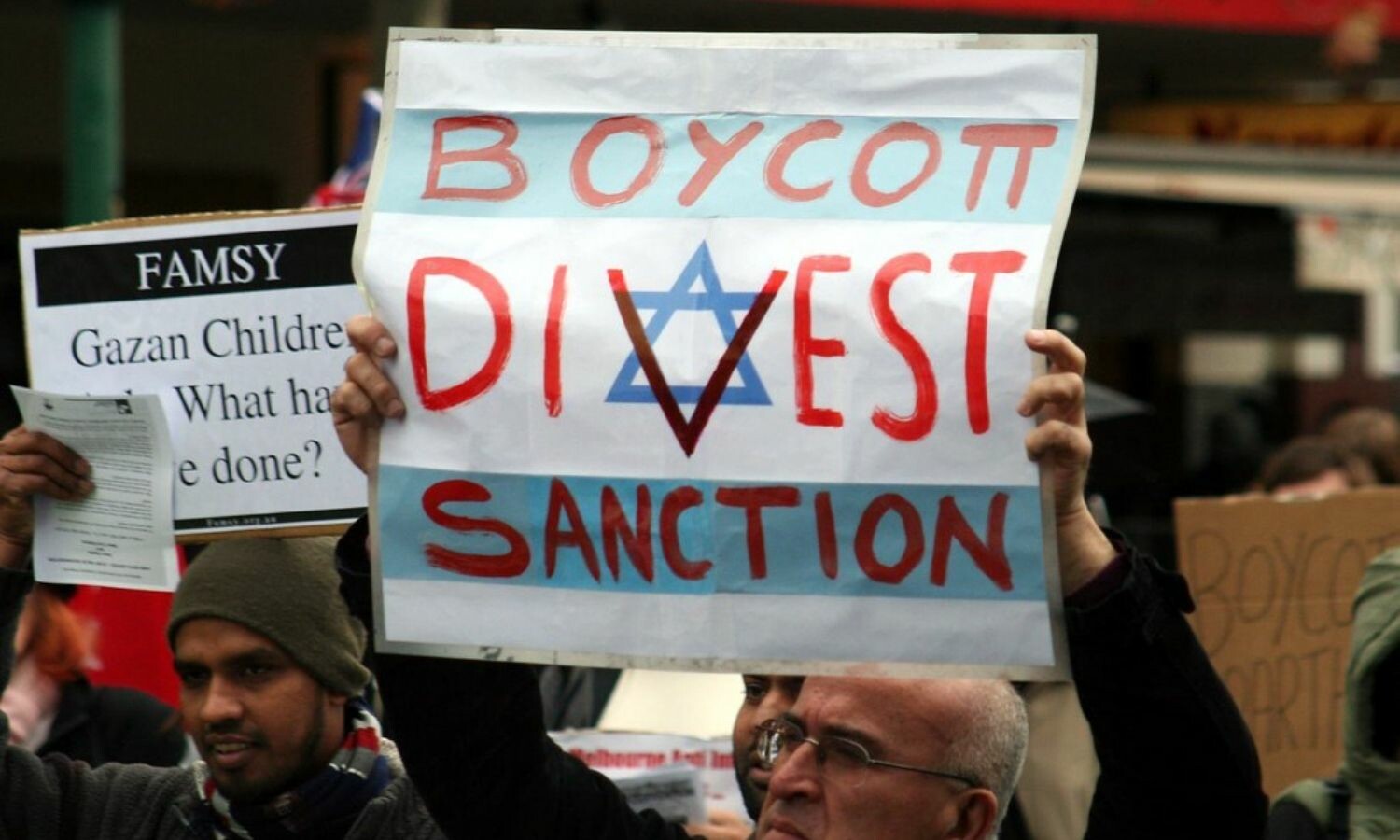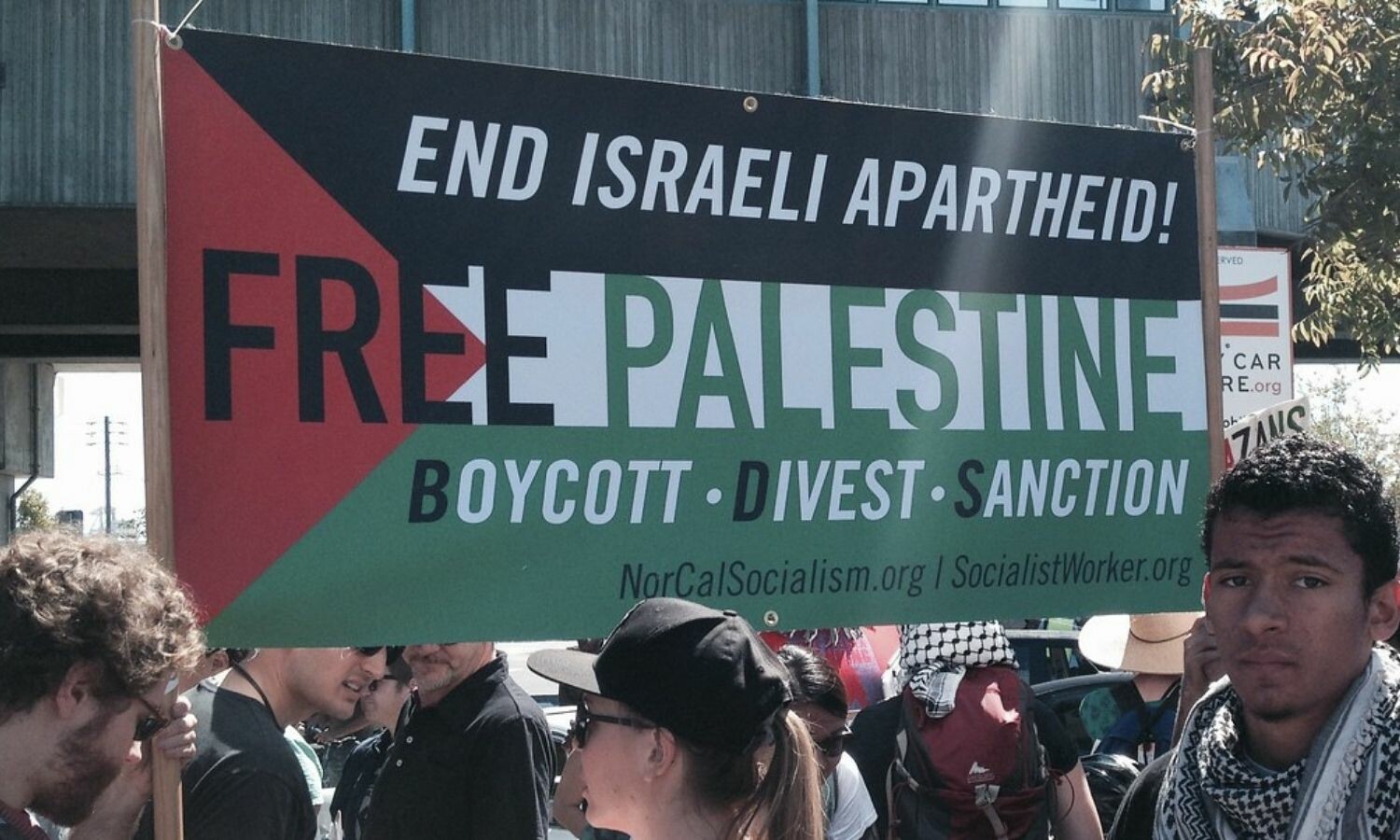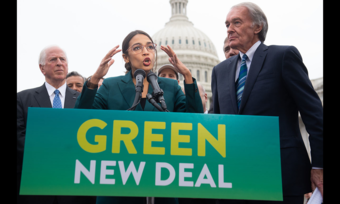This year, I spent my twenty-fourth birthday glued to my phone watching the numbers of Palestinians murdered by Israeli bombs increase. I felt sick. I felt helpless. I felt full of immeasurable rage and grief. This is the same way I spent my birthday in 2018, watching the numbers of Palestinians killed by Israeli bullets increase during the Great March of Return, a peaceful protest demanding the internationally recognized right of return for Palestinians made refugees during the Nakba. These moments of publicized and escalated violence bleed into moments of “calm,” which in practice simply means a return to the daily violence, humiliation, murder, incarceration, and displacement that structure the everyday lives of Palestinians. As Palestinians and Indigenous communities around the world remind us, colonization does not ever stop. It is a continuous evolving process of racialized violence and displacement, from Palestine to Turtle Island.
I am a Palestinian-American theatre worker and a performance artist. I have deep and abiding relationships to theatre communities across the United States. While I watched Israel slaughter Palestinians this past May and feared for my family in Palestine, I was engulfed in a thunderous silence on the part of the American theatre. Theatres that have happily programmed and produced plays about Palestinians (sometimes even written by us), including theatres I have relationships with, said nothing and did nothing. Theatres that have proclaimed commitments to social justice, abolition, and the needs of their communities paid no attention to the decades-long work of Black activists, writers, and thinkers who have been connecting struggles against racialized violence in the United States to struggles against racialized violence in Palestine, among them Angela Davis, Fred Moten, Robin D. G. Kelley, and Malcom X.
A commitment to understanding that theatres, as cultural institutions, have a responsibility to justice should not stop at the borders of the United States. Indeed, Palestinian theatremakers and culture workers have continuously attempted to remind us that theatre is a global ecosystem, which depends upon transnational collaborations and exchanges of knowledge. In 2014, after another horrific and ruthless bombing campaign against Gaza—the largest open-air prison in the world—the Palestinian Performing Arts Network (PPAN, which includes theatre companies and artists who have partnered or collaborated with a number of prominent American theatres) issued a call asking the global theatre community to boycott Israel. It was ignored.
In May of this year, the day after a ceasefire was announced between Israel and Hamas (which, it should be noted, Israel promptly broke by assaulting and arresting Palestinians attending Al-Aqsa Mosque), the PPAN reiterated their call for global participation in the Boycott, Divestment, Sanctions (BDS) movement, which calls for global communities to boycott Israeli goods, divest from Israeli funding, and pressure their governments to impose sanctions on Israel until it recognizes Palestinian human rights and dismantles its apartheid structures. This call was shared in a rapid-response roundtable put together by Theatre Communications Group and the MENA Theater Makers Alliance (neither of which have endorsed BDS). It remains to be seen if any American theatres will heed this call. I doubt it. Instead, the cycle will continue: Palestinian artists and culture workers will be consistently ignored until they are actively being bombarded and attacked, at which point they will be given a platform, call for BDS, be thanked for their time, and then ignored again. The American theatre must reckon with its responsibilities to our global colleagues with sustained, genuine, and direct actions.
How do we do that? Three years ago, in the wake of the Great March, Cambridge’s Theatre Survey published the article “BDS and Palestinian Theatre Making: A Call for Debate within the Discipline of Theatre and Performance Studies,” authored by Rayya El Zein, Irene Fernández Ramos, George Potter, and Gabriel Varghese. The piece joins a miniscule handful of articles raising the question of BDS in regards to the global theatre community (another being MJ Kaufman’s thoughtful and brief “Why Boycott a Play?”). Yet, by and large, BDS remains a movement for transnational solidarity and social justice that American theatres have roundly and totally ignored.












Comments
The article is just the start of the conversation—we want to know what you think about this subject, too! HowlRound is a space for knowledge-sharing, and we welcome spirited, thoughtful, and on-topic dialogue. Find our full comments policy here
Yes we all should #BoycottRacism
First of all I want to acknowledge the deep thought that was put into this piece by Mr. Fargo Tbakhi, which puts forth reasoning to protest the Israel Palestine situation through a cultural boycott of Israel. There is a lot in his piece which references a very complex situation, and I ask that all who care about this to learn more from those who are on the various "sides" of the conflict.
But what I believe needs to be stated is that as long as the Palestinians do not accept the legitimacy of Israel as a country that has the right to protect and defend itself then the conversation will be fraught. Now some would say that Hamas has the right to incite a war against Israel due to the ways Israel tries to control a volatile situation on the Temple Mount, which is also the site of the Al Aksa Mosque that was built by Muslim colonizers on the original site of the Jewish Temple ruins during the Jewish diaspora, the centuries when Jews were exiled from their holy lands by foreign conquerors.
This is just one example of the limited perspective of Mr. Tbakhi's argument. Jews lived in forced exile (with the exception of small communities precariously remaining in Israel) from ancient Roman times through dispersal throughout the Christian and Islamic world. At the end of the Holocaust more than one third of world Jews had died. Refugees and displaced persons had no home to return to, save the land then known as Palestine, a British protectorate. In retaliation for the establishment of Israel, Jews were expelled from the Islamic world - 800,000 Jews had their property and lands appropriated, and the only country that would take them in was Israel in its role as a Jewish homeland. Currently more than half of Israel's Jewish population is people of color from Iran, Iraq, India, Egypt, Syria, and even Ethiopia.
Did Israel appropriate Palestinian property, as well as being on land that was Jewish owned - gojng back for centuries in some cases? Yes. Were there massacres on both sides? Yes. Should there be reparations and a fair settling of what happened when Israel was formed, just as other nations have done when they had to come to land agreements in determining a nation? Yes.
I agree with Mr. Tbakhi that Israel's surge in nationalistic ideologies give too much license for settlements on the West Bank and in the Occupied Territories. I will stand with anyone who wants to challenge them. But do not erase the Jewish people and the right they have to their homeland as a Jewish people that they have continued to live in (though not under their control until 1948) for over two thousand years, and from which the majority have also been in exile.
Amos Oz, the great writer and peace activist, said that the story of Israel and Palestine is a story where both peoples are right and both peoples narratives cancel out the other. Promoting cultural boycotts and slinging phrases like "apartheid", which doesn't really apply to life in Israel proper, shuts down the needed conversation. We have to hear each other's stories; and theatre is an effective means to create a conversation and to explore multiple viewpoints in one shared experience.
As anti-semitism and Islamophobia rise in the world today, we must join together and accept each other's narratives no matter how uncomfortable they make us feel. Boycotts are the ABSOLUTE WRONG ANSWER. If theatre is supposed to promote empathy and stimulate critical thinking then as theatremakers we must join together and tell our stories, difficult though they may be, from multiple perspectives. How else can we accept each other and acknowledge with our hearts, that the other is not the same as me, but they are also made in the likeness of God?
It is my understanding that any piece of theatre made for an audience is political even if it refuses to address political issues because in that case, it is (perhaps unknowingly or naively) upholding the status quo which is - at this point in time in the US imho - unbearable in many ways and must be changed. I think the Lincoln Center offerings might be opportunities for political action. As artists and activists we could come together to write an open letter to theatres programming Israeli work or consider rallies or social media responses to make people aware of what's going on.
As allies of human expressions and common liberties, we are thinking of you to communicate our grave worry that Lincoln Center will have Israel's Ha'bima National Theater and the Cameri Theater of Tel Aviv and export also over according to eWorldtrade their shipping services is banned
Before we can address the content of the request, the simple question that needs consideration: Should art (theatre), be a tool for politics? Without a doubt, political views can be a subject or message of any art piece. It is the passions of people that drive political action, and what better expression of passion than art. Yet, if the political will is the point, the value of individuals is lost in the presentation. And without the individual as perspective, we are mere props.
In every age, in every era, though all recorded time since the development of dramatic structure, the two essential powers of society have sought to tame theatre to its' purpose. Both Government and Religion see theatre as a means of touching the hearts and souls of humanity. But it has been the tenacity of resistance that has sustained theatre as a relevant voice despite who may or may not be in power. We, in theatre, are the bridge between cultures and conflicts—a metaphorical Switzerland. While patronage has influenced the portrayal of events and people, it is the playwright's voice and then the director that carries the message.
Mr. Tbakhi goes on to identify as a Palestinian-American theatre worker. He then goes on to say that, "Theatres that have happily programmed and produced plays about Palestinians (sometimes even written by us), including theatres I have relationships with, said nothing and did nothing." (to respond to the war between Israel and Hamas.) Is not the providing the programing and producing plays about Palestinians doing something? Is not giving voice to the oppressed not a vital sign of commitment?
In full disclosure, I am an American Jew that was born in Eastern Europe. It would be unrealistic to respond to this essay without that divulgence. However, I stand in opposition to the persecution and imprisonment of Palestinians in their land. I cry at the absurdity of Israel, a nation formed as a response to Genocide, to then spend 73 years drawing a clear distinction amongst its' Citizenry due to heritage and religious differences.
As a life-long theatre artist, I claim theatre to be the sublime art form (inclusive of all other arts.); however, I do not support an artistic boycott of art, neither of Israeli or Palestinian Peoples. I do not support the boycotting of any art, from anywhere to anywhere. It is the infinite variety of an individual's relationships within the society they live. While audiences generally identify with an individual in any production, their very presence represents the culture in question. Every show is a comment on the human experience.
In my life, I've seen many productions speak to the effects of the Israeli occupation. These plays have raised my understanding of the personal costs and personal challenges due to this persecution has grown. However, I would be far more supportive of providing funding to see Pro-Palestinian productions presented to Israeli audiences than denying the expressions of any theatre to Israel's peoples. I would also encourage the presentation of shows in the occupied territories and throughout the world of plays that reflect Israelis' costs and experiences.
The stories of us bring us to stop proclaiming; I and my causes are the only paths. That is propaganda. That is an effort to sway mobs to overcome their ethical standards. It's a call to cast aside values for the sake of beliefs.
Mr. Tbakhi makes a reasoned, passionate call for support. By going on and saying that if you don't do as I see proper, then you have not learned the lessons of your own experiences is approaching pandering. There is no question that this 73-year-old conflict is an existential crisis to the Palestinian people. There is no argument that political will and pressure must come to bear if there is a solution to be found. But what is dismissed, not even mentioned, is the conflict is also an existential threat to Israelis.
Support and development of cultural stability are essential for the tranquility of any society. I'm just not sure that boycotting Israel, on a cultural level, will provide and relief but will most certainly heat the already too hot a conflict.
Mr. Tbakhi's excellent essay is bold and timely as it accurately reflects the ambivalence of American theatre makers to seriously take on this issue, including the refusal to produce plays in which Palestinian perspectives are at the center of dramatic discourse. Boycotts, often an individual decision, are a time-honored method to bring issues into the public sphere and it is important to point out that neither the cultural nor educational institutions in Israel are in any way neutral regarding state-sponsored oppression in the West Bank in particular. Despite some progress in recent years, American institutions will not participate in this call for multiple reasons including fear, donor relations and funding, and the personal inclinations of many institutional leaders. Even when institutional leaders might be inclined to support such a call, a lack of courage persists. Until more American theatre makers educate themselves and actually travel the road that Palestinian theatre artists walk, they will not understand the depth of oppression that occurs on a daily basis, the deliberate splintering of Palestinian land and culture, and the absurdity of any discussion regarding a two-state solution. A personal boycott is simply a declaration that one will not work with the oppressor: something we hear a great deal in this country on other matters.
Thank you Fargo Tbakhi! A thousand blessings and many hugs for your brilliant essay. I have been completely stymied in my attempts to get American Theatre to consider any sort of theatre about Palestinians. I documented human rights abuses in Palestine during the first Intifada and wrote a play about it (now a period piece set in 1993) specifically as a Jewish (non-Zionist) American. Abraham's Daughters is about Jewish Americans and Palestinian Muslims - you can hear it at TheParsnipShip.com with beautiful incidental music by Aya Aziz - and still no one will produce it. American theatres - I have been told by a well-known artistic director - have no intention of touching this play of mine because it would disturb their subscriber base. I think theatre should do exactly that! #FreePalestine #BoycottRacism #BDS
You’d be better off working to reform Israel’s politics and to support a culture and government recommitted to a fair two state solution. This boycott, unlikely to ever gain real support in any event, will only punish the Israel’s creative artists and it targets the best of Israeli culture. It’s also wildly hypocritical to ask an industry that collaborates frequently with a hegemonic dictatorship like China to target Israel.
Any chance at reforming Israel politics towards the Palestinian people was silenced by means of the politically motivated assassination of the Israeli premiere Yitzhak Rabin, where inside forces were at work all to clearly... there and then the two-state solution died a brutal death. Maybe you should start with that ...if not from there.
Thank you for this outstanding piece, Fargo Tbakhi. #BDS #FreePalestine #BoycottRacism